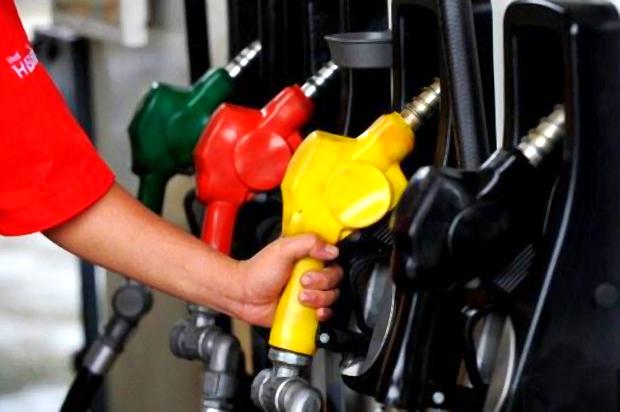
INQUIRER stock photo
MANILA, Philippines–The government on Friday started to inject molecular markers on fuel products that paid the correct excise taxes and import duties in line with its program aimed at deterring oil smuggling.
The first live fuel marking was at Seaoil’s bulk terminal in Mabini, Batangas, the Bureau of Customs (BOC) said in a statement.
“In the next few months, random field testing will be conducted by the BOC, the Bureau of Internal Revenue (BIR) and Sicpa-SGS on depots, tank trucks and retail stations in order to determine the presence and dilution level of the fuel marker on fuels which are subjected to marking. This activity will continue until the market is saturated with marked fuels,” the BOC said.
“A confirmatory testing will be conducted immediately on fuels found to be unmarked or with marker levels below the prescribed dilution level and corresponding duties and taxes will be collected from oil companies found to have unmarked or diluted fuels,” Customs Commissioner Rey Leonardo B. Guerrero said.
The DOF earlier said that full implementation of the fuel marking guidelines contained in Joint Circular No. 1-2019 will be during the fourth quarter.
Under the joint DOF-BOC-BIR circular, the fuel marking provider—the joint venture of SGS Philippines Inc. and Switzerland-based SICPA SA under a five-year contract—must produce the duly-approved official marker, provide it in ready-to-use form, and conduct actual fuel marking nationwide in all taxable oil products, except Jet A-1, Avgas, crude oil and LPG.
The guidelines empowered the BOC and the BIR with deputization and police authority during field testing—in case they found adulterated, diluted or unmarked petroleum, BOC and BIR officers can not only seize these products but also arrest unscrupulous traders.
The BIR will supervise field testing in refineries, their attached depots, gasoline stations, and other retail outlets; meanwhile, the BOC will oversee fuel marking in depots, tank trucks, vessels, warehouses, and other fuel-transporting vehicles.
The fuel marking program mandated under the Tax Reform for Acceleration and Inclusion (TRAIN) Act was expected to generate additional revenues of P5 billion this year, Finance Secretary Carlos G. Dominguez III earlier said.
Fuel marking will cost P0.06884 per liter, to be shouldered by the government during the first year of implementation; from the second until the fifth year, the payments will be sourced from the trust receipt created under the TRAIN Law.
The DOF’s estimates had shown revenue losses from excise taxes and value-added tax (VAT) due to oil smuggling and misdeclaration reached P26.9 billion in 2016, almost half of the actual P52.6 billion collected by the BOC and the BIR that year.
As such, the government wanted to implement the fuel marking program to minimize smuggling and misdeclaration as well as jack up the collections of the BOC and the BIR, the country’s two largest revenue agencies. /jpv
RELATED STORY:
Nationwide fuel marking starts in March